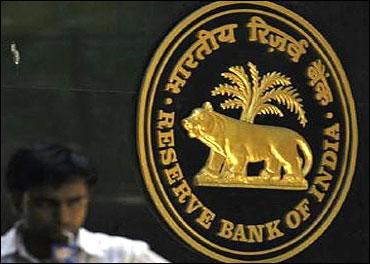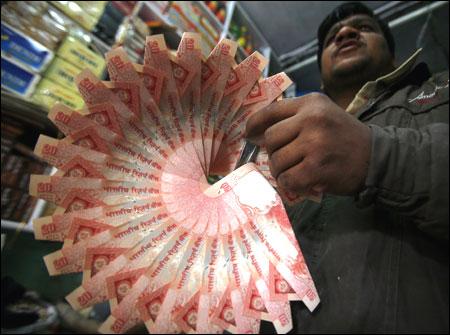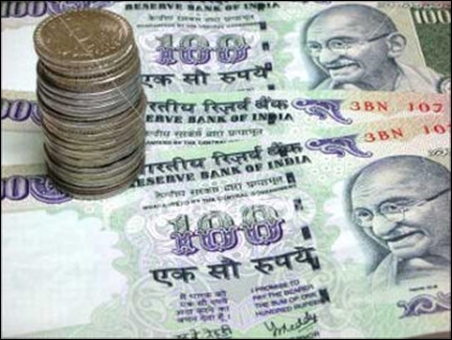 | « Back to article | Print this article |
Top 10 personal finance news that affected your money in 2011
Here's a summary of top financial events that affected your money directly in 2011.
2011 saw a flurry of changes -- some good, some bad -- in the stock markets, rate of inflation, prices of gold, the fall of the Indian rupee, hike in income tax slabs, deregulation of interest you earn on savings accoun deposits to just name a few events that affected your personal finance equations.
1. European debt crisis
We all witnessed the financial market volatility in both stocks and bonds in the recent past. This is going to continue in 2012 till a potent solution is not devised for this situation. Together with stock market volatility, the financial institutions that are exposed to this debt will have to write off their debt in worst case scenario, and take a hit on their bottom line.
Borrowing will get costlier and interest rate will remain quite high for some time, creating extra pressure on the economy. And as borrowing will be costlier, spending will be less resulting in prolonged recession.
Top 10 personal finance news that affected your money in 2011
2. RBI's monetary policy
In spite of multiple increases in repo and reverse repo rates, in the current financial year the RBI's monetary policy in 2011 failed to contain the ghost of inflation. WPI indicated rate of inflation has been 9.6 per cent, which is abnormally high. Why it is that inflation has not been contained despite so many rate hikes is a question that will continue to haunt us all in 2012.
Top 10 personal finance news that affected your money in 2011
3. Rupee depreciates to a new low
The rupee fell to a new low of 54.3 to the US dollar, with the Euro's weakness against the US unit adding to the woes of India's currency. The Euro's fall has prompted safe haven-buying of the US currency globally and this weakened the rupee, which has already been under pressure from weak economic numbers and nervous investor sentiment.
Top 10 personal finance news that affected your money in 2011
4. New income tax slabs
In the annual budget last year, the government brought relief for the common man by widening the tax slabs further, along with reducing qualifying age of senior citizens from 65 years to 60 years, and introducing a high new tax slab for senior citizens of over 80 years in age (super seniors) who will not be required to pay taxes for income up to Rs 5 lakh per annum.
Top 10 personal finance news that affected your money in 2011
5. Saving account interest rate deregulated
Till recently the interest on savings account deposits was governed and regulated by the Reserve Bank of India (RBI). Banks had no control whatsoever and a meagre 3.5 per cent on the lowest amount available in the account from the 10th to the end of month was paid out.
With the RBI's recent move to deregulate this interest rate, banks now have a free hand in deciding what they wish to pay to their depositors.
Top 10 personal finance news that affected your money in 2011
6. Revision in post office savings schemes
The Central government has made some key changes to the post office small savings schemes. The revision in the schemes and interest rates was in response to Reserve Bank of India's announcement on complete deregulation of savings banks deposit rates.
Top 10 personal finance news that affected your money in 2011
7. No need to file tax return for income up to Rs 5 lakh (Conditions apply!)
No income-tax returns would be required for salaried persons earning up to Rs 5 lakh per annum. However, under the scheme, the salaried person wants exemption from filing IT return, has to disclose about the incomes like dividend and interest to his employer for tax deduction. But conditions apply.
Top 10 personal finance news that affected your money in 2011
8. Hurray! Indians can invest in global markets
This year SEBI's move to allow the Indian investors to trade in almost 24 major global indices including that of US, Europe and Asia, sitting in their comfortable homes, strengthens the proposition that everything is local now.
As SEBI has opened the gates partially (you can only trade in derivatives of global indices for the time being) let's try to figure out how exactly this arrangement works and how an individual investor can gain from this opportunity.
Top 10 personal finance news that affected your money in 2011
9. IRDA issues customer centric guidelines for online insurance marketing
Insurance regulator IRDA issued guidelines on distance marketing of products to protect the interest of individuals who buy policies over phone or Internet. Insurance companies are mandated to implement the guidelines from October 1, 2011.
The Compliance Officer of each insurer shall submit to IRDA, at the end of each financial year, a certificate confirming that the insurer has complied with all the provisions of these guidelines during the year.
Top 10 personal finance news that affected your money in 2011
10. The rise and fall of gold
Global prices of gold have been steadily going upwards since last decade. In September this year, gold prices saw a correction of around six per cent from the peak and have fallen sharply along with equity.
In the short-term, experts say there will be a slow rally in gold prices; in the long-term however, gold prices will be largely determined by currency prices and inflation rate. Lower the reserve currency (presently, US Dollar) and higher the inflation rates, the higher the price of gold and vice versa.










